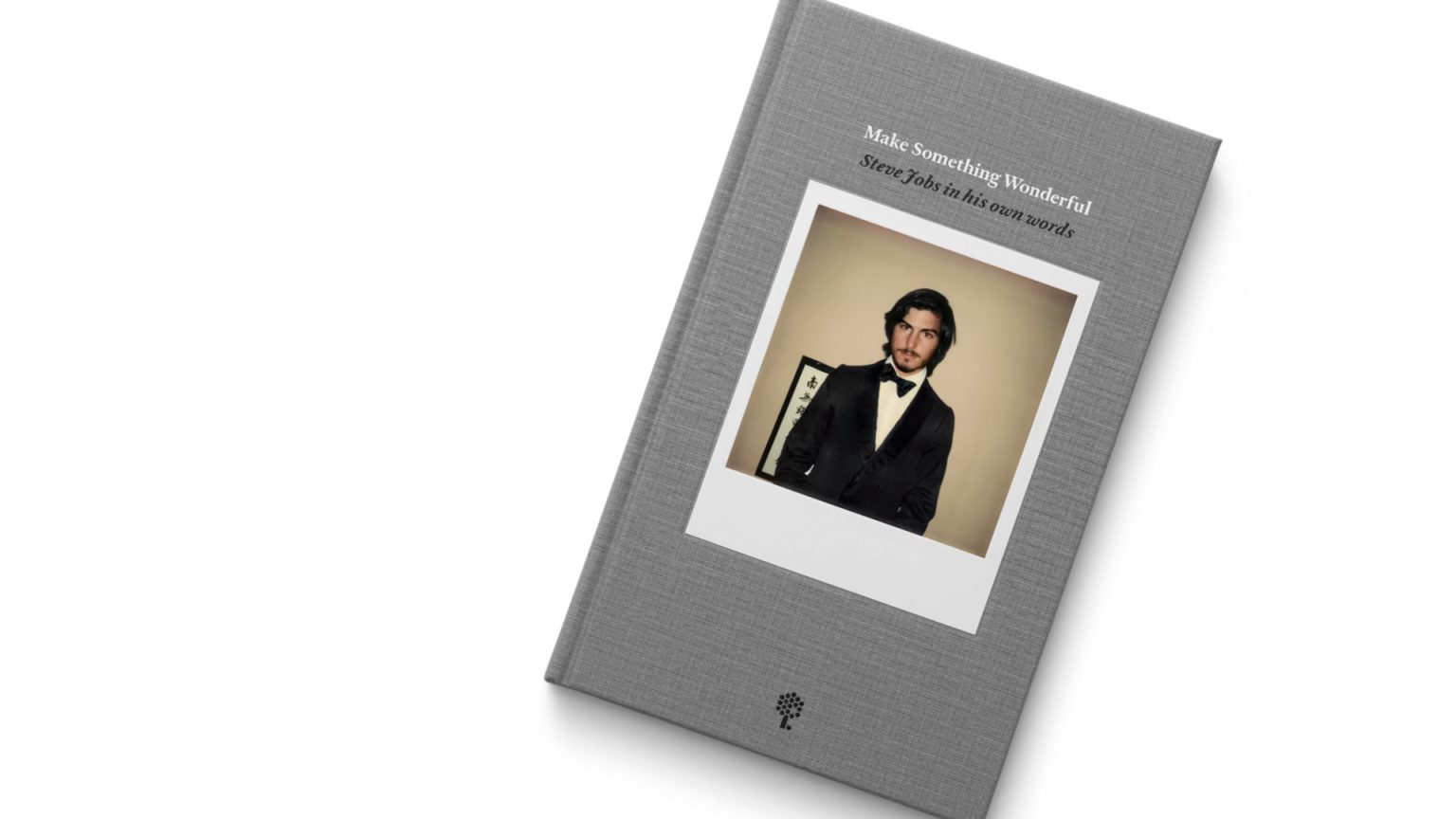For years, we’ve heard Apple’s Founder Steve Jobs’ words through the eyes of others — biographers, journalists, and co-workers. But now, you can read his own words and get a deeper insight into his thought processes.
The Steve Jobs Archive has released a book of Steve’s own words, a combination of emails, speeches, and quotes from Steve himself, without the filter of Apple’s PR department as we’ve known in the past.
Everyone knows Steve. He’s given us so much in the past, through Apple’s values, through the way Apple has created their products, and through the legacy of those who worked closely with him.

Discover new horizons, always connected with eSIM
Travel the world stress and hassle-free with the best eSIM service available. Enjoy unlimited data, 5G speeds, and global coverage for affordable prices with Holafly. And, enjoy an exclusive 5% discount.
But perhaps we’ve got to know him through the lens he left behind. The stories people tell us about Steve. Most of the stories we hear are secondhand. But this is a primary source. Of course, there are edits to protect the privacy of others Steve communicated with, but this is as close as we can get to Steve Jobs’ own words and his own opinions on what he and his teams were working on. It’s how Steve communicated with his teams, in real-time, at the time they were building the future we now live in.
Looking Back at Steve Jobs’ Life
That is something of value that we can understand in retrospect. Something we can look at in the context of what the world has done since. Retrospect is a luxury, we can now see what worked and what didn’t, but it’s fascinating to get a look inside.
You’ll find Steve talking about how the Macintosh can write memos in Times Roman or Helvetica – comparing the invention of this to the Telegraph in 1844. How the font can communicate so much more than the words alone in an interview with David Sheff.
Steve’s Pixar vs Intel
There’s also back and forth in emails between Steve and Intel during the time he was working with Pixar. Intel wanted Pixar’s secret sauce behind what Pixar was able to do with their hardware. While Steve originally wanted money from Intel for Pixar’s IP, it seems Andy Grove was able to turn him “180 degrees”.
There’s a popular opinion that Steve Jobs bullied employees around to his way of seeing everything, but when you see the emails back and forward, of course Steve is pretty aggressive, but when things make sense to partner and share their tech, Steve was happy to do so.
That has never been the narrative in popular culture, it’s far more fun to think of Steve as a perfectionist. Steve has always just wanted the best product going out of the door. He wasn’t concerned with a top-down way of developing or marketing products, just the right products getting to consumers.
“You’d better have great people, or you won’t get your product to market as fast as possible. Or you might get a product to market really fast, but it will be really clunky and nobody will buy it. There are no shortcuts around quality, and quality starts with people. Maybe shortcuts exist, but I’m not smart enough to have ever found any”
Steve Jobs

Steve’s return to Apple
Skipping forward to late 1996, Steve says how great acquiring NeXT is for Apple. But later goes on to say how all the Apple employees working so hard… “I just don’t see it!”
His ethos sees that a $1 a share increase means a dollar for everyone. Everyone gets a 60-day notice plan and cancels the sabbatical plan. This is for Apple, Newton, and Claris worldwide.
Apple soon killed the Newton Project, even though a number of those technologies, over a decade and a half later would re-emerge. What came back? Everyone will tell you it was the iPhone, but Newton’s handwriting recognition became iPad scribble. Down to the correction gestures, scribbling out mistakes, highlighting, and the rest.
Steve killed Newton when he returned to Apple, but at the time, it was the right move, even if the technologies later became a massive boost for Apple.
Everything in the Book from The Steve Jobs Archive kind of fits what we thought about Steve. He wasn’t gentle with his employees, but nor was he unfair, or a person to hold a grudge.
If your work at Apple wasn’t great or wasn’t in pursuit of what Steve thought it should be, he’d tell you it was bad. But the comment was on the work, not your work. If it’s in line with what he wanted or could justify it, Steve would be on the side and respect the pushback.
It may be cool to see Steve Jobs as the OG of hustle culture and working every hour to get the work done, and that may be the case in some examples, but when taken as a whole I think it’s clear that Steve pursued amazing work, but as it’s been said before, he didn’t hold grudges against workers. It was a case of brutal honesty, wanting the best possible work.
But take a look for yourself, and share your favorite Steve quote in the comments.
You can read the book for free at The Steve Jobs Archive or download it from Apple Books.



